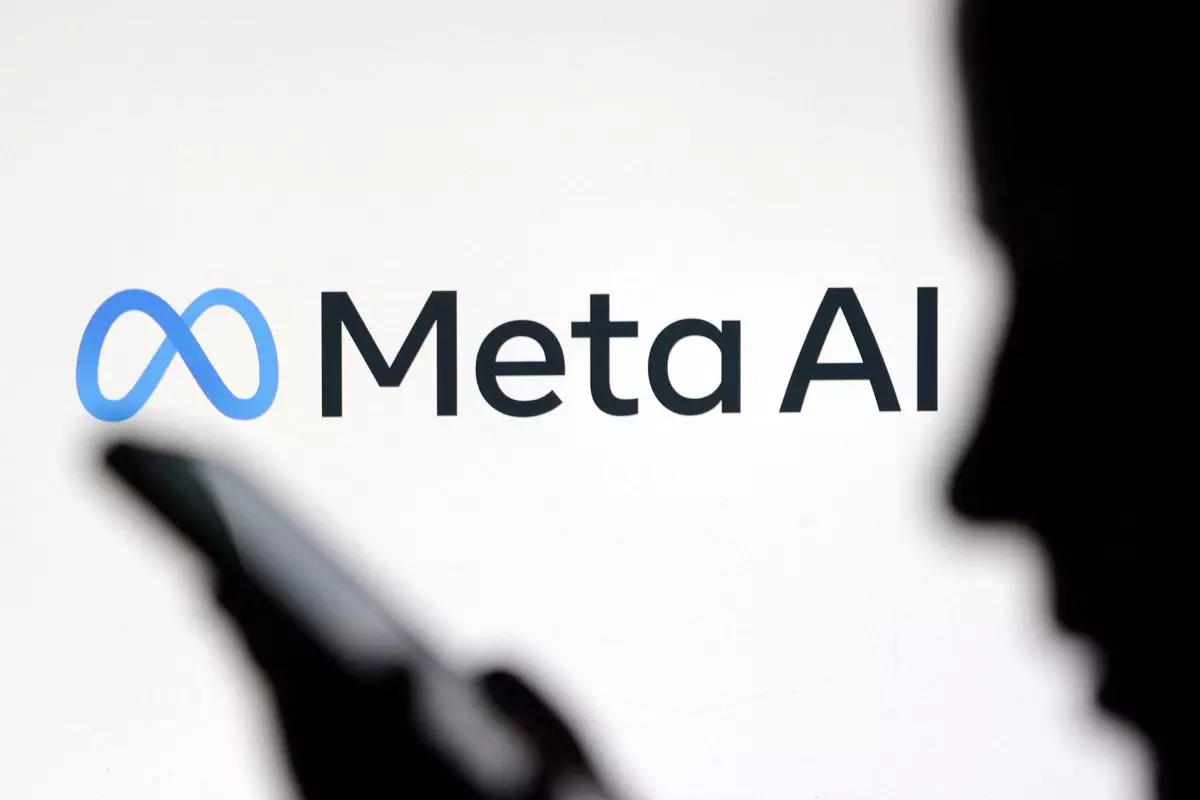On Friday, Meta, the parent company of Facebook, announced a significant advancement in artificial intelligence (AI) technology. The tech giant unveiled a suite of new AI models from its research division, highlighting a groundbreaking tool named the “Self-Taught Evaluator.” This model represents an ambitious stride toward minimizing human intervention in the AI development continuum, reflecting a broader trend in the industry towards greater automation and self-sufficiency in AI systems.
The Self-Taught Evaluator employs a method inspired by the chain of thought technique, which has been notably utilized in OpenAI’s latest models. This technique encourages the disaggregation of multifaceted problems into manageable, logical steps, thereby enhancing the accuracy of AI responses across a spectrum of complex subjects, including science and coding. By exclusively using AI-generated data during its training phase, Meta has significantly reduced the reliance on human input, pushing the boundaries of how AI can be evaluated and improved autonomously.
According to the researchers involved, this development could lead to the creation of autonomous AI agents capable of learning from their own missteps. Such agents are envisioned as advanced digital assistants that could perform a multitude of tasks without any human oversight, thus reshaping our interacting dynamics with technology.
The Shift from Human-Centric Learning
Traditionally, AI development has heavily relied on Reinforcement Learning from Human Feedback (RLHF), a process that necessitates insights from human annotators possessing specialized knowledge. This method has been criticized for being both costly and inefficient. In contrast, the introduction of self-evaluating AI models suggests a paradigm shift. As researchers like Jason Weston indicate, there is a clear aspiration for AI systems to reach super-human capabilities, able to self-assess and enhance their performance continually.
Weston noted, “We hope, as AI becomes more and more super-human, that it will get better and better at checking its work, so that it will actually be better than the average human.” This insight underscores the potential for AI to transcend human performance in evaluation tasks, fundamentally altering the landscape of AI research and application.
Meta’s initiative comes at a time when other tech companies, such as Google and Anthropic, are also exploring similar frameworks, particularly the concept of Reinforcement Learning from AI Feedback (RLAIF). However, a distinguishing factor lies in Meta’s commitment to making its models available for public use, offering a more open platform compared to its competitors who tend to restrict access to their findings.
In addition to the Self-Taught Evaluator, Meta has rolled out other AI tools, including an enhancement to its Segment Anything image-recognition model and tools designed to expedite the generation of responses in large language models. Furthermore, the datasets released can facilitate the discovery of new inorganic materials, showcasing Meta’s dedication to integrating AI across diverse fields.
Meta’s recent announcements signal a significant evolution in the development of AI technologies, prioritizing autonomy and efficiency. As AI systems strive to self-evaluate and learn from their errors, the implications for both industries and everyday life could be transformative. By reaching for super-human capabilities, Meta is not just advancing its own technological arsenal but also potentially reshaping the future of AI as a self-sufficient entity. The journey ahead promises to be an exciting exploration into the realms of autonomous intelligence.


Leave a Reply
You must be logged in to post a comment.